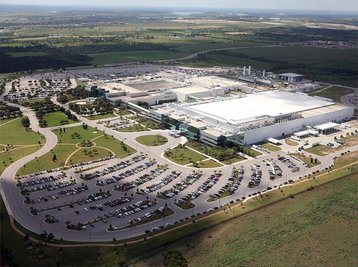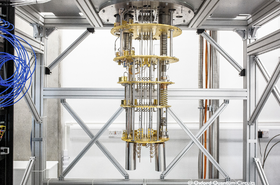Samsung Electronics plans to build a $17 billion semiconductor fab in Taylor, Texas.
The facility will be operational in the second half of 2024, so will not alleviate the current chip shortage crisis - but will help address US concerns about declining domestic production.
The new facility will develop processors for smartphones, 5G, data centers, high-performance computing, and artificial intelligence platforms. It will build the chips on behalf of both Samsung and other customers.
“Increasing domestic production of semiconductor chips is critical for our national and economic security," Secretary of Commerce Gina M. Raimondo said in a statement. "“Semiconductors underpin our entire economy, and the demand for semiconductors will only continue to increase."
The new chip fab is about 30 miles from Austin, where Samsung already operates a chip fab (which shut down earlier this year due to Storm Uri, costing the company hundreds of millions). Rival TSMC is also building a $12 billion+ fab in Arizona, which will also be home to two Intel fabs, for $20bn.
The new Samsung facility is expected to create around 2,000 jobs, with a $27 million grant from the state of Texas. Larger tax breaks and incentives are expected for the facility.
Taylor previously offered Samsung property tax breaks of over 90 percent for its first ten years. Samsung could also receive $3 billion in incentives from the $52 billion CHIPS Act, Texas Senator John Cornyn said - should the act pass without provisions incentives go to US companies, something Intel is lobbying for.
"This is the largest foreign direct investment in the state of Texas, ever," state governor Greg Abbott said.
Samsung spent years evaluating where to build the new fab, courting multiple locations and pitting them against each other for better incentives. But the ultimate decision came down to Samsung Group's leader Jay Y. Lee, who was granted early parole in August expressly to speed up crucial business decisions like the Texas chip fab. Accounting for between 10 and 20 percent of the nation's GDP, Samsung is often given preferential treatment, with executives pardoned for crimes in the name of ensuring national economic growth.
In 2017, Lee was convicted of bribing a friend of then-President Park Geun-hye, and sentenced to five years in prison in Korea. His sentence was revised down to 30 months, of which he has served around 18 months.
The Samsung leader bribed Choi Soon-sil, a pseudo-Christian cult leader nicknamed "the Korean Rasputin," who may have helped decide government policy during the Park administration. Park denied she held shamanistic rituals at the presidential compound, but was removed from office following the scandal. She has since been sentenced to more than 30 years in prison.
Lee gave Choi money and horses in an effort to ensure a merger within different subsidiaries of Samsung would pass, helping him solidify control over the company after his ailing father passed.
His father, Lee Kun-hee (who was also convicted of bribing a president, and subsequently pardoned), suffered a heart attack in 2014, and was left incapacitated as a result. But he was left technically in charge until his death last year.
With Lee now the group leader, he must sign off on all large merger and investment decisions, including US chip expansion plans.





